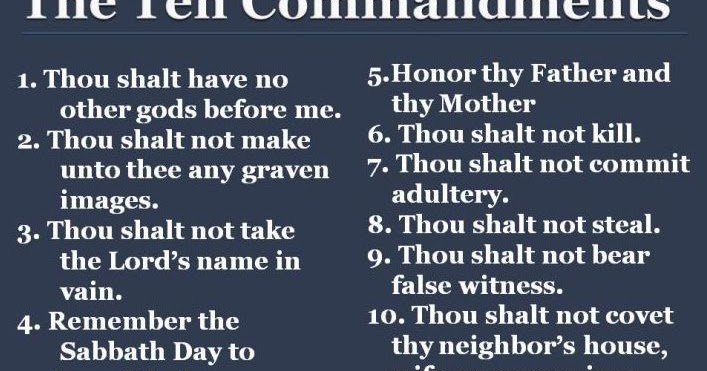

David ordered that an Amalekite be put to death because he claimed to have killed King Saul. Achan is put to death by Joshua because he caused defeat of Israel's army by taking some of the plunder and hiding it in his tent. The Hebrew Bible has many other examples of sinners being put to death as due consequence for crimes. On a separate occasion, a blasphemer was stoned to death because he blasphemed the name of the Lord ( Yahweh) with a curse. As a result, Moses said that the Levites had received a blessing that day at the cost of son and brother.

The Levites obeyed and killed about three thousand men who had sinned in worship of the golden calf. When Moses came down, he commanded the Levites to take up the sword against their brothers and companions and neighbors. A number of sins were considered to be worthy of the death penalty including murder, incest, bearing false witness on a capital charge, adultery, idolatry, bestiality, child sacrifice to pagan gods, cursing a parent, fortune-telling, homosexuality, and other sins.įor example, the Exodus narrative describes the people as having turned to idolatry with the golden calf while Moses was on the mountain receiving the law from God. The Torah and Hebrew Bible made clear distinctions between the shedding of innocent blood versus killing as the due consequence of a crime. Justified killing: due consequence for crime In a more modern analysis, Wilma Ann Bailey also finds a broader application of the word retzach. While Jerome had access to Jewish scholars, "even the Jewish translators were not unanimous in maintaining a consistent distinctions between the various Hebrew roots." Jerome's choice of the word occidere (to kill) reflects the broader range of meanings. Most subsequent translations follow Jerome's Vulgate. Eliezer Segal observes that the Septuagint uses the term harag, and that Augustine of Hippo recognized that this did not extend to wars or capital punishment. When Cain is driven into exile, complaining that "every one that findeth me shall slay me" in Genesis 4:14, he again uses this verb ( h-r-g). Īnother verb meaning "to kill, slay, murder, destroy, ruin" is h-r-g, used of Cain slaying Abel in Genesis 4:8. The right of the avenger of blood to such revenge ceased, upon the death of the person who was the Jewish High Priest at the time of the crime.
#Thou shalt not worship any graven image code#
The Priestly Code allowed the victim's next of kin ( avenger of blood) to exact retribution on the suspect but the accused could seek sanctuary in a city of refuge. The Torah portrays murder as a capital crime and describes a number of details in the moral understanding and legal implementation of consequences. Whoever sheds the blood of man, by man shall his blood be shed, for God made man in his own image. The Genesis narrative also portrays the prohibition of shedding innocent blood as an important aspect of God's covenant with Noah. And now you are cursed from the ground, which has opened its mouth to receive your brother's blood from your hand." Genesis 4:10–11 (ESV)

"The voice of your brother's blood is crying to me from the ground. The commandment against murder can also be viewed as based in respect for God himself. The commandment against murder can be viewed as a legal issue governing human relationships, noting that the first four commandments relate strongly to man's duty to God and that the latter six commandments describe duties toward humans. The Covenant Code and Holiness Code both prescribe the death penalty for people that commit n-k-h. This verb is used of both an Egyptian slaying an Israelite slave and of Moses slaying the Egyptian in retaliation in Exodus 2:11–12. The act of slaying itself, regardless of questions of blood guilt, is expressed with the verb n-k-h "to strike, smite, hit, beat, slay, kill". The Bible never uses the word retzach in conjunction with war. If the killing is accidental, the accused must flee to one of the cities of refuge-and remain in that city until the high priest dies, or the "revenger of blood" can kill the accused with no legal repercussions. Even accidental killing, or "thou shalt not kill," is expressly prohibited in Numbers 35:33. Īccording to the Book of Numbers, killing anyone outside the context of war with a weapon, or in unarmed combat, is considered retzach. The Hebrew verb רצח ( r-ṣ-ḥ, also transliterated retzach, ratzákh, ratsakh etc.) is the word in the original text that is translated as "murder", but it has a wider range of meanings, generally describing destructive activity, including meanings "to break, to dash to pieces" as well as "to slay, kill, murder". 5 Reformation and Post-Reformation doctrines.4.3 Suicide, euthanasia, health, intoxication.1.4 Justified killing: intruder in the home at night.1.2 Justified killing: due consequence for crime.


 0 kommentar(er)
0 kommentar(er)
